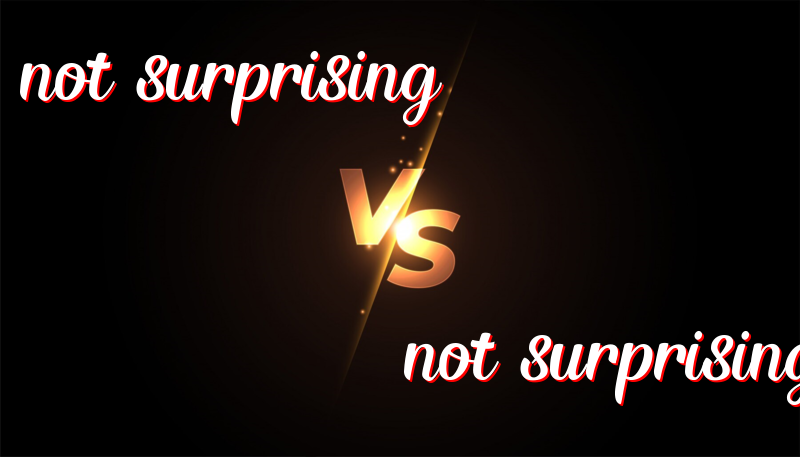Understanding the Difference Between “Not Surprising” and “Not Surprisingly”
Difference Between Not Surprising and Not Surprisingly
Not Surprising: “Not surprising” is used when something that happens is not a surprise. It is used to describe things that do not surprise us.
Not Surprisingly: “Not surprisingly” is used before describing something that happens often or is expected. It shows that what follows is what we think will happen.
History
Both “not surprising” and “not surprisingly” come from the word “surprise,” which has been used in English since the 14th century. “Surprising” and “surprisingly” started being used more in the 18th and 19th centuries.
“Not surprising” uses the word “surprising” as an adjective. “Not surprisingly” uses “surprisingly” as an adverb.
How to Use Them
Use “not surprising” to describe something that is not a surprise.
Use “not surprisingly” to explain something that is expected or fits what we know.
Trick to Remember the Difference
Remember this trick: “Not surprising” describes a thing or event. “Not surprisingly” explains why something is expected.
Examples of “Not Surprising”
- It is not surprising that he won the race.
- The baby cried, which is not surprising.
- It is not surprising that she got an A on the test.
- It is not surprising that it rained today.
- His answer was not surprising at all.
Examples of “Not Surprisingly”
- Not surprisingly, he was the first to finish the race.
- Not surprisingly, the baby cried during the night.
- Not surprisingly, she did very well on her exam.
- Not surprisingly, it started to rain on our picnic day.
- Not surprisingly, he knew the answer to the question.
Summary
Use “not surprising” to describe a thing that is not a surprise. Use “not surprisingly” to explain an expected result. “Not surprising” is an adjective; “not surprisingly” is an adverb.

Leave a Reply
You must be logged in to post a comment.